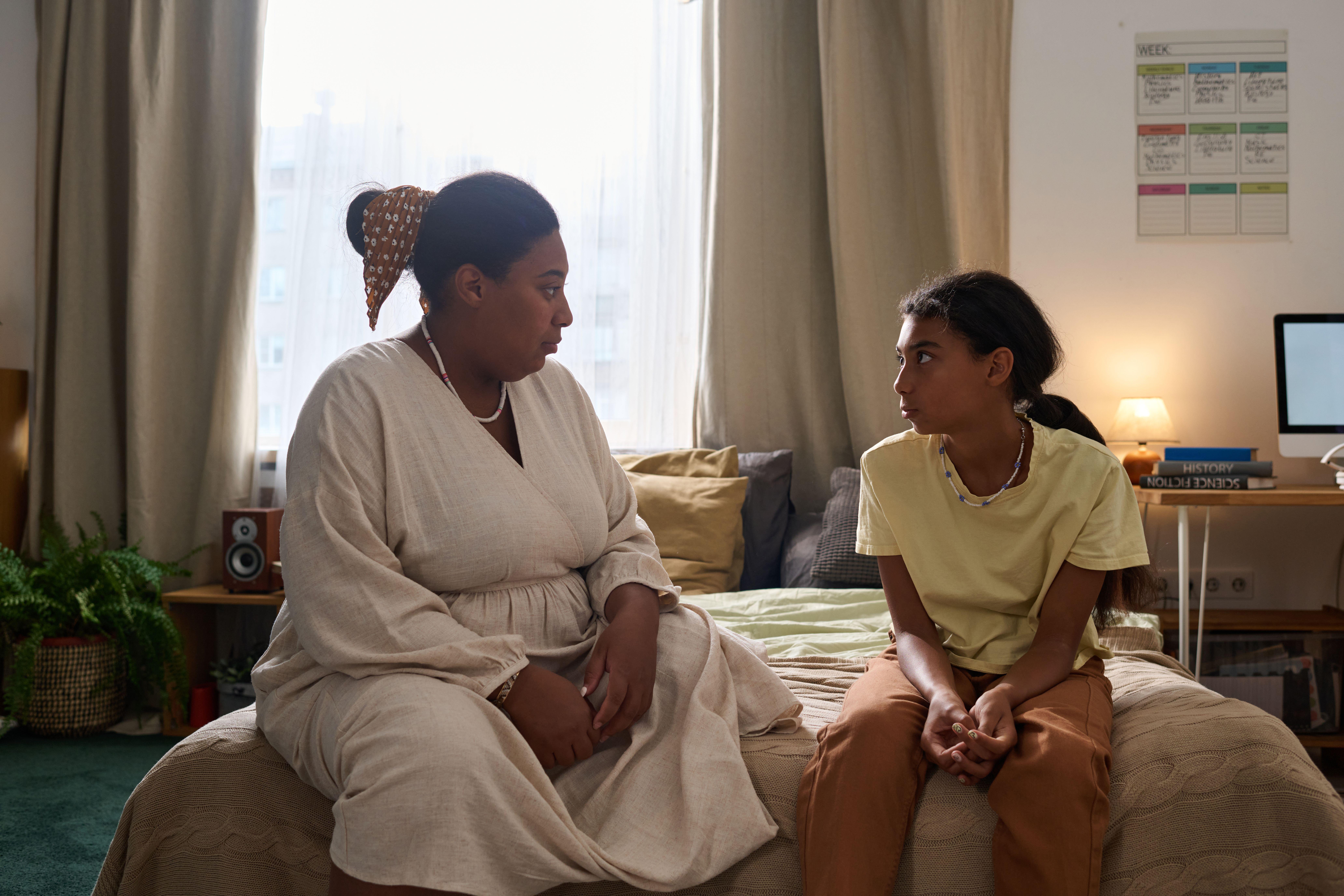This website uses cookies so that we can provide you with the best user experience possible. Cookie information is stored in your browser and performs functions such as recognising you when you return to our website and helping our team to understand which sections of the website you find most interesting and useful.
Support truly
independent journalism
Our mission is to deliver unbiased, fact-based reporting that holds power to account and exposes the truth.
Whether $5 or $50, every contribution counts.
Support us to deliver journalism without an agenda.

Louise Thomas
Editor
Teenagers who are glued to their phones are more likely to be anxious, depressed and suffer insomnia, researchers found.
New research published in Acta Paediatrica – which surveyed 657 pupils aged 16 to 18 at five schools – found that 123 teenagers displayed signs of problematic smartphone use (PSU).
More than half (56%) of teenagers with PSU reported symptoms of depression and researchers also found that teenagers with PSU were 64% more likely to report symptoms on insomnia.
In addition, 43% of pupils with PSU reported that they had symptoms of anxiety.
Talking to teenagers about screen time can be hard, so here are some helpful tips on how to get them off their phones without starting an argument…
Choose your time and place wisely
“Choose where and when you talk to them, for example not when they are in the middle of gaming,” recommends Liat Hughes Joshi, author of six parenting books including How To Unplug Your Child.
Having these conversations in the car can work well.

“This is a great time to discuss things that are a little bit awkward with your child because they don’t have to look you in the eye if they are shy about it,” explains Hughes Joshi.
Julia Neesam, a CBT therapist who has worked with clients on phone use relating to anxiety and depression, adds: “Try and have the conversation when both of you are not going to be interrupted and when both are not tired or hungry.”
Start gently and ask questions

“Open the doors [to these conversations] really gently and just ask them a question rather than making a statement,” advises Hughes Joshi. “It could be ‘How are you feeling at the moment about X, Y or Z?’
“It is about using a gentle tone and not sounding like you are nagging or about to launch into a lecture, but just that you are interested and that you care.”
Set an example

“We know children often take their cues from parents so you can set the example when it comes to screen-free time,” says Matt Buttery, chief executive of Triple P UK & Ireland. “The best way to approach this is by modelling the behaviours you wish to see from your child.”
Help them find a hobby

“Talk to them about what they enjoy and see if they want to start anything new,” recommends Neesam. “Use what’s happening at the moment, e.g. the Paris Olympics, and talk about the inspirational people who are taking part and how much reward they get from their chosen sports.”
Susan Dunigan, founder of The Enlightened Parent, adds: “Going somewhere for the first time and meeting new people can be anxiety-inducing, so finding ways to reduce this will bode well.
“Make it as easy as possible for them to try it for the first time, perhaps by offering to take them and collect them.”
Set boundaries

Stand firm on your non-negotiables, but make sure your teenager feels involved in these decisions.
“For first-time phones, set a contract or agreement for how they should be used, including time limits, screen-free activities and places phones should not be kept, such as in the bedroom at night,” advises Dunigan.
“As they get older, ask them what boundaries they think you should implement to keep them safe and suggest some ideas yourself.
“Once you have come up with one or two ideas, begin to implement them with an understanding that your child might find it difficult but that you are there to support them.”
Plan non-screen time

“Simple and cost-effective things such as going for a walk or playing a game together, or having a picnic can be much more fun alternatives and create lasting memories,” says Buttery.
Don’t give up
“It can feel like it is a mountain to climb…but don’t give in,” says Hughes Joshi. “Don’t be defeatist and think ‘oh teenagers are just like this and there is nothing I can do‘ because there are things you can do if you get the tone right and you work together.”



 Africana55 Radio
Africana55 Radio 
